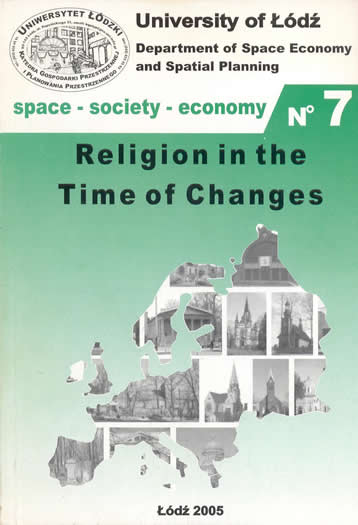Samoświadomość a typ religijności - badania empiryczne adolescentów
DOI:
https://doi.org/10.18778/1733-3180.07.10Abstrakt
Self-awareness is an immanent factor of modern human behaviour. It shows its presence in various situations of everyday life, during interpersonal contacts, in decisions making, conflicts, or attribution and making judgments (compare Zaborowski 2000, p. 7). This omnipresence of selfawareness in human life, encourages research on this subject.
On the other hand, religiousness – which touches the idea of humanity itself, has many important functions in personality structure and in social functioning of an individual or a group. Religiousness becomes one of the basic determinants of correct development. To define the criteria of mature religiousness becomes a necessary condition.
Religiousness becomes more significant in the context of youth, because this social group seems to be contesting, also holding in contempt social or moral norms, and as a consequence, also religious rules. Therefore, we can say that self-awareness and religiousness, are the one of basic levels of human existing.
Taking everything above into consideration, the subject of connection between self-awareness and religiousness in adolescents was researched. The aim was to find connections between different types of self - awareness (examined using the Oleszkiewicz and Zaborowski self-awareness scale) and types of religiousness, understood as the experience of relations with God (examined using the Dirk Hutseband Questionnaire of Religiousness Relations).
Pobrania
Bibliografia
Hutsebaut D., (1980). Belief as livd relations. Psychologica Belgica. 20, 33 – 47.
Google Scholar
DOI: https://doi.org/10.5334/pb.655
Jarosz M., (2003). Interpersonalne uwarunkowania religijności. Lublin: TN KUL.
Google Scholar
Sobczak S., (2004). Aksjologiczne wątki w koncepcji samoświadomości. W: L. Pytka, T. Rudowski, (red). Samoświadomość i jakość życia. ENETEIA. Warszawa: Wydawnictwo Psychologii i Kultury. 81 – 93.
Google Scholar
Śliwak J., Altruizm a religijność człowieka - badania empiryczne. Roczniki Filozoficzne KUL, 4, 41, 41-52.
Google Scholar
Śliwak J., Matuszewski A., (1998). Postawa religijna słuchaczy „Radia Maryja”. Miesięcznik Diecezji Pelplińskiej. 6,71,421-435.
Google Scholar
Śliwak J., Szafrańska M., (2000). Poziom altruizmu a przeżywane relacje religijne do Boga. W; T. Doktór, K. Franczak (red). Postawy wobec religii. Psychologiczne uwarunkowania ikonsekwencje. Warszawa: Salezjański Instytut Wychowania Chrześcijańskiego.
Google Scholar
Zaborowski Z., (1989). Psychospołeczne problemy samoświadomości. Warszawa: PWN.
Google Scholar
Zaborowski Z., (1993). Dysonans poznawczy a samoświadomość. Przegląd Psychologiczny, 36, 2, 171 – 179.
Google Scholar
Zaborowski Z., (1996). Współczesne problemy psychologii społecznej i psychologii osobowości. Warszawa.
Google Scholar
Zaborowski Z., (2000). Teoria treści i form samoświadomości. Warszawa: Wydawnictwo Akademickie „Żak”.
Google Scholar
Pobrania
Opublikowane
Jak cytować
Numer
Dział
Licencja

Praca jest udostępniana na licencji Creative Commons Attribution-NonCommercial-NoDerivatives 3.0 Unported License.









